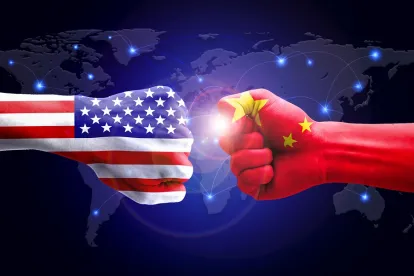On December 2, 2020, U.S. Customs and Border Protection (CBP) issued an order blocking all imports of cotton and cotton products from Xinjiang Production and Construction Corps (XPCC), a Chinese state-owned company operating in the Xinjiang Uighur Autonomous Region. The impact of the order, intended to combat the alleged use of forced labor of ethnic Uighur Muslims, is potentially sweeping — as, by some estimates, XPCC produces 7% of the world’s cotton.
This is CBP’s sixth enforcement action in three months targeting goods from China’s Xinjiang region, underscoring not only Washington’s heightened focus on this issue, but also the need for U.S. importers to carefully review (and potentially reassess) their supply chains moving forward.
Background
Section 307 of the Tariff Act of 1930 (19 U.S.C. § 1307) prohibits the importation of merchandise mined, produced or manufactured, wholly or in part, in any foreign country by forced or indentured labor. Until 2016, § 307 contained a “consumptive demand” clause allowing importation of certain forced-labor produced goods if those finished goods generally were not produced in large enough amounts to meet U.S. consumption. The Trade Facilitation and Trade Enforcement Act (TFTEA) of 2015 repealed the consumptive demand clause in § 307.
Thus, after the passage of TFTEA, CBP ramped up its enforcement of § 307. It began by issuing more withhold/release orders (WROs), which may be issued when information “reasonably but not conclusively” indicates that goods are made in whole or in part using forced labor.
The December 2 WRO is notably broad in scope, as it applies to all cotton and cotton products produced by XPCC and its subordinate and affiliated entities, along with all products that are made in whole or in part from XPCC cotton, such as apparel, garments and textiles. Like all WROs, the order has no expiration date and will remain in effect until CBP is presented with sufficient evidence that substantially proves that subject cotton and cotton products are “not made with forced labor, [are] no longer being produced with forced labor or [are] no longer being, or likely to be, imported into the United States.”
CBP’s announcement follows the Office of Foreign Assets Control’s (OFAC) announcement in July 2020 that it has designated XPCC as a Specially Designated National (SDN). This designation essentially prohibits U.S. persons from engaging in any transactions with XPCC or any companies of which XPCC owns more than 50%.
Broader Regulatory and Legislative Trends
These latest developments highlight a clear regulatory trend in Washington. In recent months, labor and human rights groups, as well as members of Congress on both sides of the aisle, have been vocal in their calls for CBP to halt imports of cotton and agricultural products from Xinjiang and to escalate the agency’s forced labor enforcement in general.
While Congress remains sidelined, CBP has answered the call. Leveraging its broad authority under 19 U.S.C. § 1509(a) — which permits CBP to conduct examinations, issue summonses, compel testimony and impose civil penalties in relation to customs compliance — CBP has sharpened its regulatory tools through the expanded use of investigatory questionnaires (i.e., Risk Analysis and Survey Assessments (RASAs)) and its authority to commence full audits (i.e., Focused Assessments (FAs)). Each of these tools allow CBP to determine, for example, a company’s supply chain and the labor used at each stage, along with the company’s corporate social responsibility procedures on forced labor and other internal controls.
Notably, in the days leading up to the December 2 WRO, CBP sent detailed questionnaires to U.S. importers of apparel to obtain information on supply chains in Xinjiang. More likely than not, these questionnaires will be used to assess the risk profiles of importers for purposes of enforcing the WRO, and, potentially, prompting future enforcement actions.
Unresolved Legislative Action
In the backdrop of these regulatory developments is the Uyghur Forced Labor Prevention Act (UFLPA), a bill that passed the U.S. House of Representatives in September by a vote of 406 to 3. The UFLPA would:
-
Prohibit the import of goods manufactured and/or produced in Xinjiang unless CBP (1) determines by “clear and convincing evidence” that the goods were not produced wholly or in part by convict labor, forced labor or indentured labor under penal sanctions; and (2) reports such a determination to Congress.
-
Establish new disclosure requirements for publicly-traded U.S. companies knowingly engaging with entities involved in certain activities in Xinjiang.
It remains uncertain whether the U.S. Senate will vote on the UFLPA — either as a stand-alone bill or, more likely, as part of a broader omnibus package — prior to the adjournment of the 116th Congress next month. Notwithstanding, President-elect Joe Biden, through his recent public criticism of Chinese labor practices, has already signaled the incoming administration’s position on this issue, virtually guaranteeing that both Congress and the executive branch will continue to focus on forced labor issues in 2021.







 />i
/>i

